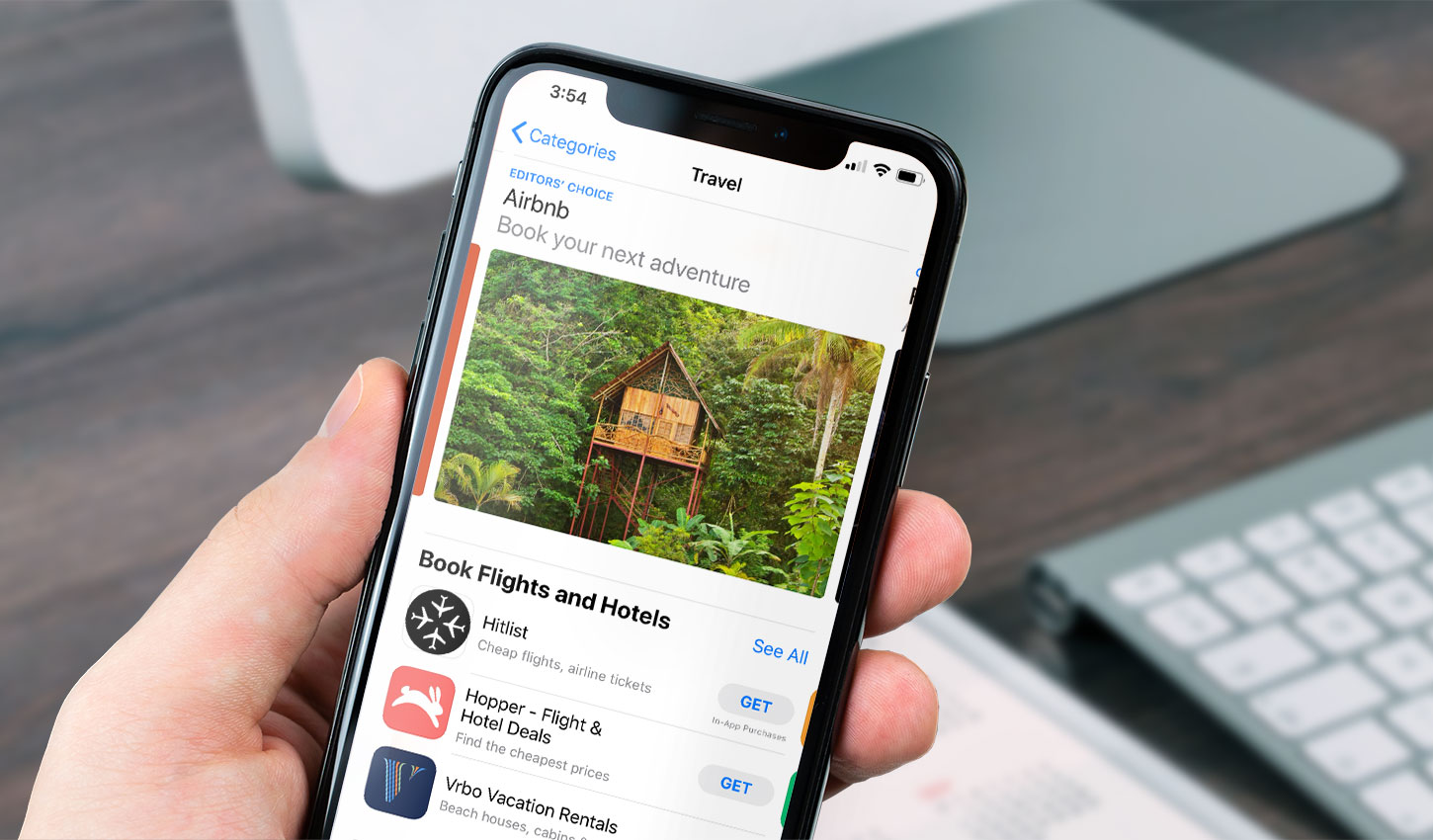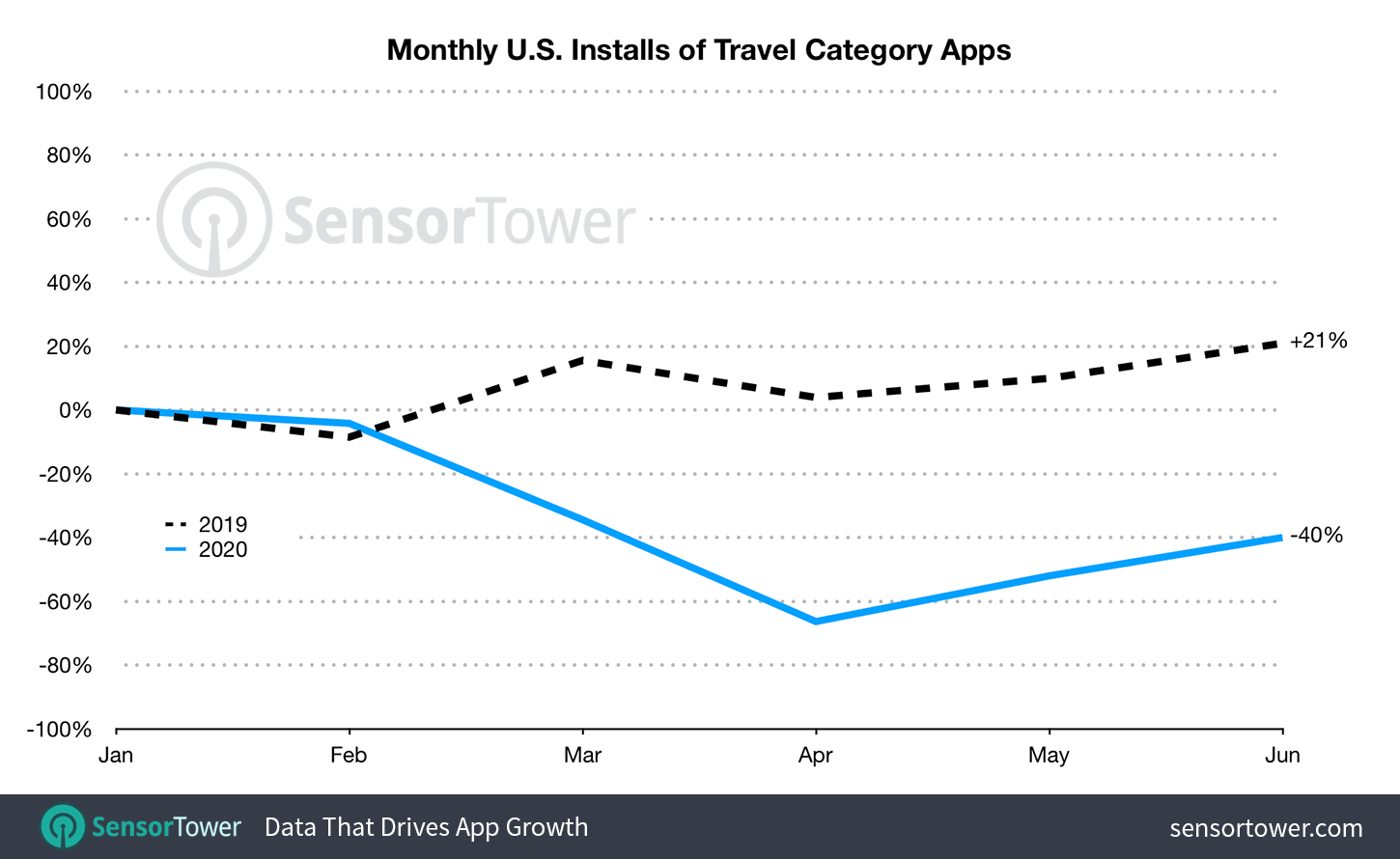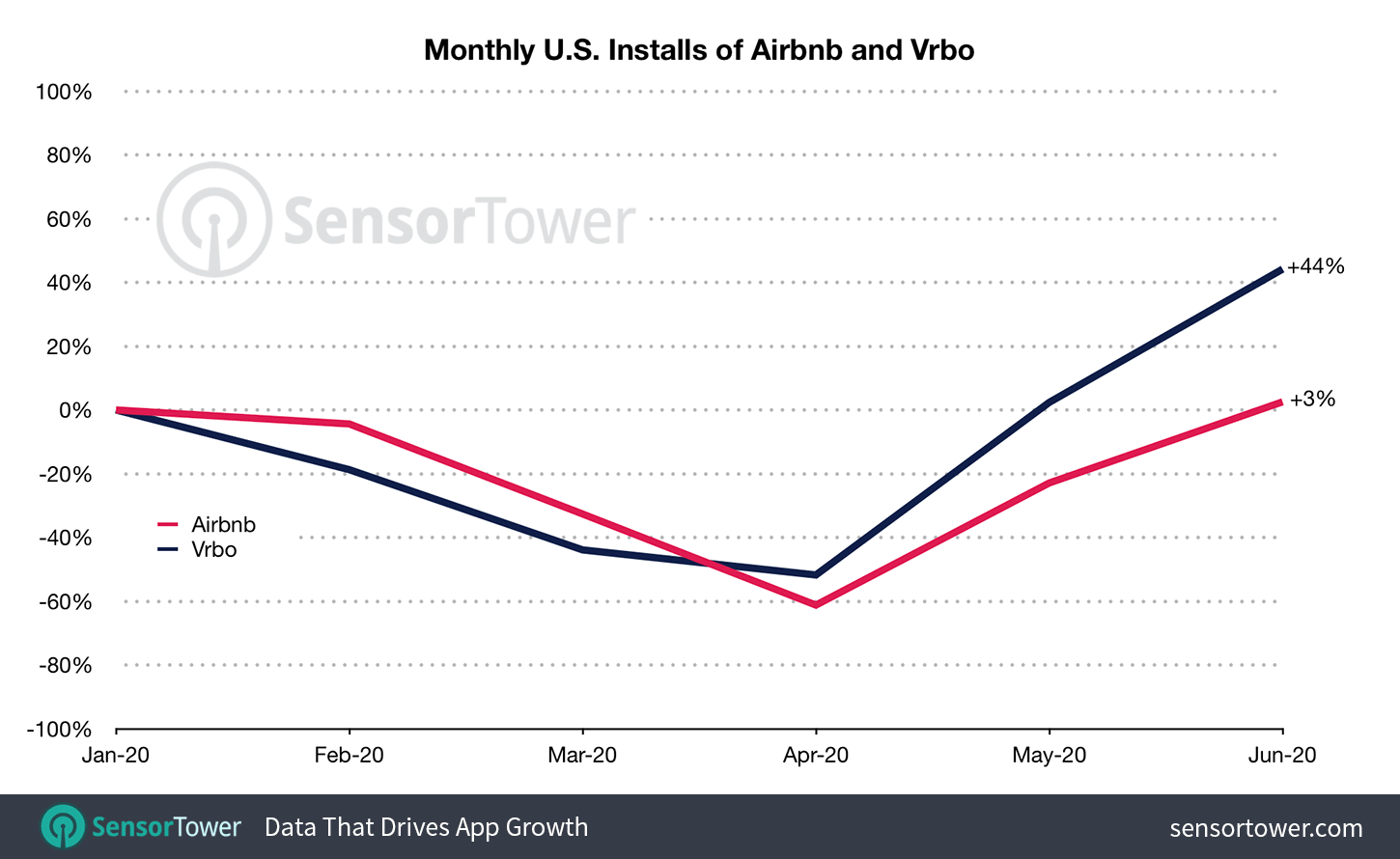
Travel apps were the hardest hit category in the mobile ecosystem by the COVID-19 crisis, with worldwide installs dropping 35 percent in April from pre-coronavirus levels in January. Though a full recovery remains unlikely in the near-term, Sensor Tower Store Intelligence estimates reveal that the category is climbing back up across the board. In the United States, travel apps rebounded to 60 percent of pre-coronavirus installs across the App Store and Google Play in June—while vacation rental apps Airbnb and Vrbo were bright spots, seeing their downloads collectively grow by 22 percent over January.
Sensor Tower’s Q2 Data Digest also found that travel apps have seen a significant resurgence in Norway, Finland, Denmark, and Sweden as those countries reopened. Norway led among that cohort, and travel apps in that country exceeded January installs by 14 percent in June.
Outside of these exceptions, however, the category saw about 133 million installs globally across the App Store and Google Play in June, or only about 67 percent of the 197.4 million installs it generated in January before the effects of COVID-19 were widely felt around the world.

The U.S. lagged behind this global number, reaching about 16 million installs for the category in June across both stores, or 60 percent of the 27 million seen in January.
Airline and Rideshare Apps: A Long Journey Ahead
In the U.S., apps related to air travel have predictably experienced the most muted recovery. Southwest Airlines, American Airlines, and Fly Delta collectively saw 728,000 installs in June, or 49 percent of the 1.5 million they saw in the first month of this year.
U.S. rideshare apps fared better than the airlines, although primary players Uber and Lyft still have a long road to travel before they see pre-coronavirus numbers. Uber surged back to 65 percent of the 1.7 million installs it saw in January, reaching 1.1 million in June. Lyft was on its heels, climbing up to 62 percent of the 1.5 million it generated in the first month of this year with its 930,000 installs last month.
Vacation Rentals Find a New Lease
Although U.S. consumers don’t appear ready to resume air travel en masse, property sharing apps have seen a boost. Most notably, Airbnb and Vrbo saw more first-time users in June than in January, with Vrbo jumping up to 1.1 million installs, or 44 percent more than the 763,000 it saw in the first month of this year. Airbnb saw a more modest increase, hitting 886,000 installs in June, or 3 percent growth from 864,000 in January.

Other vacation apps in the Travel category, such as Booking.com and Expedia, didn’t experience the same degree of lift. Booking.com did regain considerable ground, generating 502,000 installs in June or 95 percent of the 530,000 it saw in January. However, Expedia regained just 46 percent of the 759,000 it saw in January, reaching a modest 351,000 installs in June.
An Uncertain Upward Trend
Travel apps hit their nadir in April, when the category generated just 9 million installs across the U.S. App Store and Google Play, or 33 percent of the close to 27 million it saw in January. Since then, its aggregate downloads have trended upward. However, as parts of the U.S. begin to shut down once again due to the pandemic’s persistence, it’s uncertain whether this upward trend will maintain its momentum over the long-term. To contend with this, apps such as Airbnb have begun supplementing their platforms with offerings such as virtual get-togethers and more rigorous policies geared toward keeping consumers safe. Though the timeline for a full recovery remains unpredictable, our data confirms that some players in the sector are seeing success from their efforts to adapt to the ongoing crisis.
Sensor Tower’s Store Intelligence platform is an Enterprise level offering. Interested in learning more?

